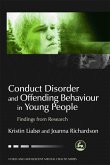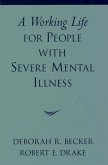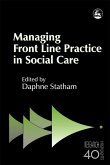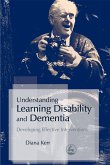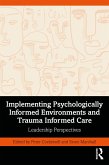How can a social worker assess the risk that an older person with dementia faces? How would a nurse or housing support worker decide on the balance between danger and safety? In cases of potentially serious harm, as in the examples of abused children or sex offenders, can risk taking work? In this practical and accessible book, Mike Titterton offers an innovative model of risk work in health and social care. He argues that a thoughtful risk-taking approach can lead to empowerment and greater independence for vulnerable individuals.
The author explores the dilemmas frequently faced when working with older people, homeless persons, and people with physical or learning disabilities or with mental illness, and proposes a systematic framework for assessing and managing the risks involved. He also discusses contemporary theories and definitions of risk, and identifies the essential skills needed by professionals, with an emphasis on developing creative approaches to practice.
Offering a wealth of case studies, examples of good practice and a clear overview of the legislative framework, this book is an invaluable resource for social work, health and housing practitioners, trainers and policy makers.
The author explores the dilemmas frequently faced when working with older people, homeless persons, and people with physical or learning disabilities or with mental illness, and proposes a systematic framework for assessing and managing the risks involved. He also discusses contemporary theories and definitions of risk, and identifies the essential skills needed by professionals, with an emphasis on developing creative approaches to practice.
Offering a wealth of case studies, examples of good practice and a clear overview of the legislative framework, this book is an invaluable resource for social work, health and housing practitioners, trainers and policy makers.
Dieser Download kann aus rechtlichen Gründen nur mit Rechnungsadresse in A, D ausgeliefert werden.




